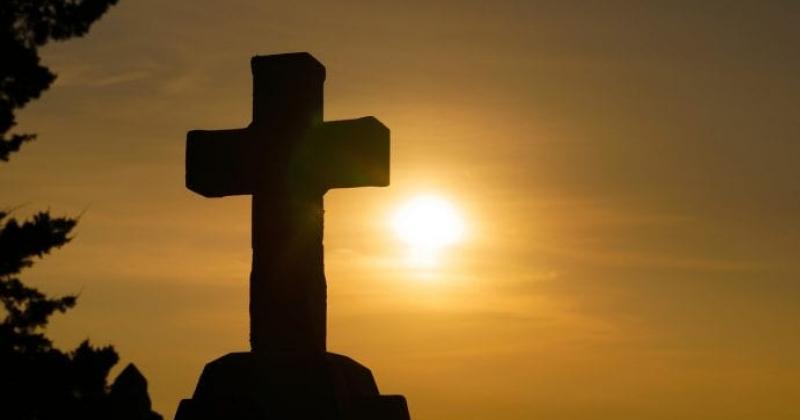Belief in God can be difficult. We’re fallen human beings and there’s great suffering in our world. It’s easier to say “no,” not believe, and to presume that everything happens by mere chance.
In such a worldview, there’s no effort to find meaning, or search for value, or struggle for reconciliation between a good God and a dark world. Things just happen. We’re just raw participants in the ebb and flow of the world. We’re only recipients of the consequences of a deterministic world.
The Lord Jesus understands this challenge. It was the predominant worldview of the gentiles at the time of his earthly ministry. The determinism of polytheism was the universal overlay to the proclamation of the Gospel. It was the vision of the occupying Romans and the esteemed Greeks of the ancient world. Admittedly, their determinism was hidden behind elaborate and ornate myths, a kind of misguided transcendentalism that stopped before it got started. And so, the elements and machinery of the world were worshipped through pseudonyms like Zeus, Apollo, and Dionysius.
As a consequence of the above, the ancient non-Jew thought he was without power to determine his own destiny. He thought he was stuck in some circular movement without personal dignity or power. In many respects, he was an antecedent to the contemporary atheist.
As Regis Martin describes it, the ancients danced around the innards of a chicken to manipulate or control the will of the gods, while the contemporary pagan tries to understand life while picking up his frozen chicken at a supermarket. While the pagans of old had some concept of transcendence, and today’s person has been demythologized, nevertheless both suffer from the same fate. Both groups think that there is no answer from above and that any answer to life’s questions must be given from creation and the earth itself.
In contrast to such a darkened worldview, however, Jesus speaks words of light. The Lord, the Morning Dawn, announces a different understanding of life. He proclaims a single God, righteous and true, who is loving and seeks out our well-being. The Lord Jesus describes life as a linear path, with a graced self-determination within each person’s heart, and an opportunity for salvation through his Passion, Death, and Resurrection.
In contrast to the desolation of determinism, the Lord announces a consolation in his Cross and Resurrection. In spite of the predominant ancient and contemporary “no” to faith in a good God, the Lord incarnates and exemplifies the power of a “yes” to a living God, abounding in goodness, and who manifests his fatherly care for all.
It is within this backdrop that we can understand the Lord’s response to the ultimatums and demands for miracles and healings. To such commotion, the Lord offers only one sign, namely, the sign of Jonah.
As Pope Francis describes it: “In St Matthew’s version, we read that Jonah was in the belly of the whale for three days and three nights. This refers to Jesus in the tomb, to his death and resurrection. This is the sign that Jesus promises… the sign of Jonah is the mercy of God in Jesus Crucified and Risen for us, for our salvation.”
The sign of Jonah, therefore, is offered to all. It is a symbolic description of the Resurrection. In this solemn promise - given credibility by the disclosure of his glory in his Transfiguration before Peter, James, and John - the Lord Jesus shows the human family the possibility of an infinite fellowship with God, a blessed eternity, an everlasting place of rest and refreshment.
The goal, however, is only reached through suffering. As with the Lord, the person must be willing to live and die in the earth. The promise of Resurrection gives new hope to humanity. Once a curse, since it could not be fulfilled, hope is now a solace and an encouragement to faith. Even as life is fallen, tragedy is inevitable, and death will come for us all, hope points us to eternity. It orders our days and guides us in finding meaning, value, and purpose in the trips and throes, triumphs and treasures of life. The Resurrection allows life to become an amazing journey, and no longer a barren repetition of nothing.
In this Second Sunday of Lent, therefore, as we hear of the Lord’s glory, we can be uplifted in knowing that this is the glory that waits for us all. In order to receive it, we must embrace the sign of Jonah, say “yes” to the journey of faith, and allow ourselves to live fully in the hope of Resurrection.
